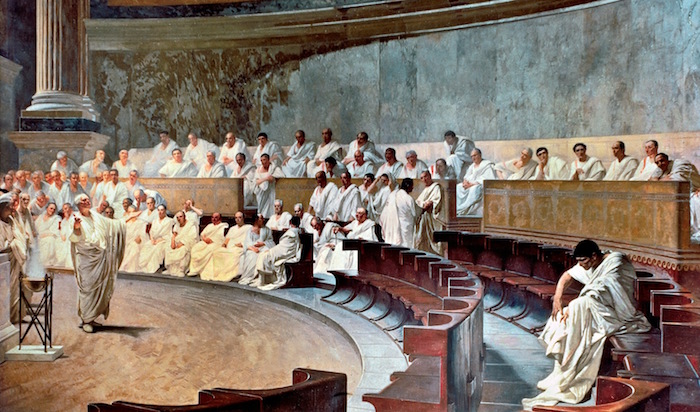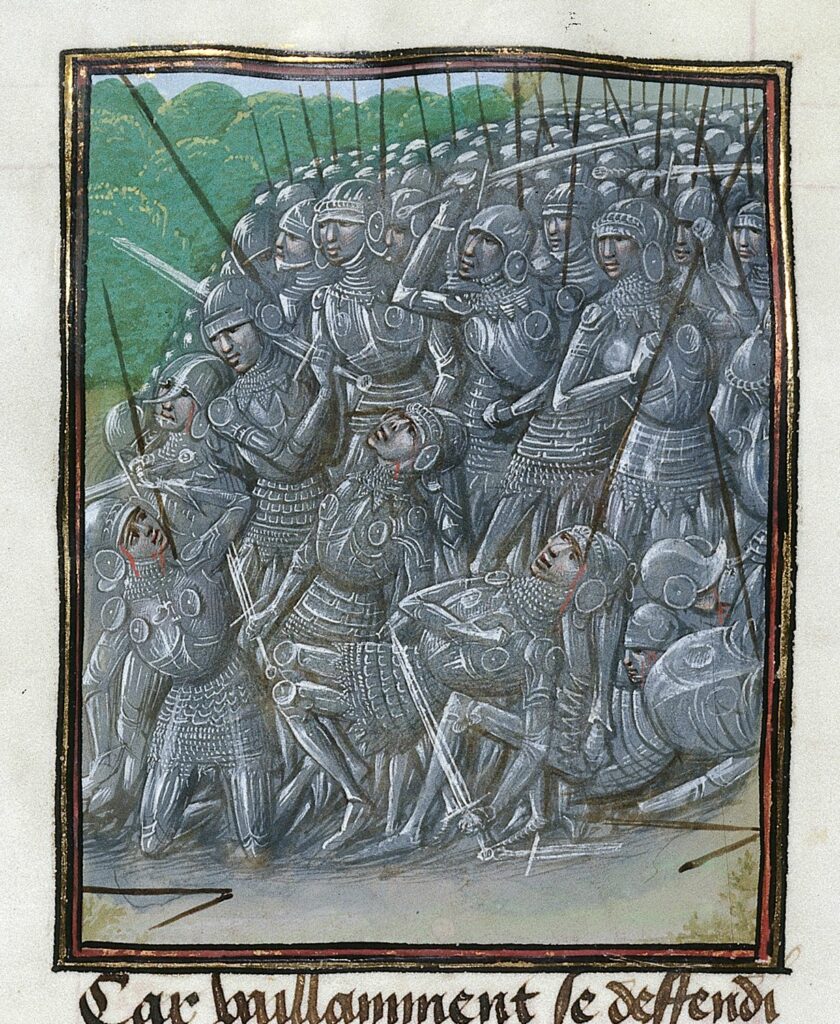When Julius Caesar seized power and overthrew the Roman Republic, he was not the first to make the attempt. Not all the earlier attempts succeeded. One such failure, the Catiline Conspiracy, makes great inspiration for an investigation-style adventure with a strong political component!

In 63 B.C., the Roman Republic was in its last years. An imperium stretching across three continents was being run by an increasingly ineffective Senate. Power couldn’t be consolidated in an individual, because every time a politician grew too powerful, he was accused of wanting to be a king and killed. Eighteen years before, an ambitious general (Sulla) briefly seized total power. In 63 B.C., the man who would complete the process (Caesar) was beginning his political career. But before that could happen, another politician would make his play for power.
Lucius Sergius Catilina (better known as ‘Catiline’) was a Roman senator of the old stock. He’d held several political offices, and his distinguished family traced its lineage back to Rome’s founders. He was also heavily in debt. Catiline’s expensive vices and political campaigns left him close to bankruptcy. Rumors also swirled of crimes in his past: extortion, rape, and murder. With no money and no reputation, Catiline needed a lifeline. So he decided to plan a revolution.

In 63 B.C., the time was right for a populist uprising. The economy was bad. Unemployment was high. The wealthy were heavily in debt. Rome was a pot ready to boil. Catiline approached several other indebted wealthy Romans with a plan to assemble an army, march on the city, and burn Rome to the ground. They’d kill their creditors, burn the records of their loans, and use the chaos to annul all debts. In the countryside north of the city, the conspirators quietly assembled an armed force of the disaffected: mostly landless military veterans and the urban poor.
Unfortunately for Catiline, word of the plot leaked out. One of the conspirators had a mistress who was leaving him because of his debts. To get her to stay, he told her about the plot and promised his money troubles would soon be over. The mistress took the information to the wife of a prominent Roman senator named Cicero. Catiline tried to have Cicero killed, but Cicero escaped harm.
Meanwhile, letters surfaced from another conspirator warning his friends to skip town. Catiline himself was hauled before the Senate to account for the letters and respond to Cicero’s accusations. Catiline denied everything, then fled north to join his secret army.

The final straw was an unlikely one. A delegation of Gauls was in Rome appealing for relief from their taxes. The conspirators secretly urged the Gauls to organize a revolt when they got home. This would distract the Roman army and make the conspiracy more likely to succeed. Before the Gauls could leave Italy, they were intercepted by loyalist forces and made to reveal all they knew. Cicero convinced the Senate to convict Catiline to death in absentia, without a trial. The move was illegal and would dog Cicero for the rest of his life, but nobody cared much about the law at the time.
Most of Catiline’s army deserted him. He fled east with those who remained, trying to cross the Apennine Mountains to relative safety. When the Roman army caught up with him, they trounced his rag-tag band of rebels and killed him.

At your table, the Catiline conspiracy is a great template for a fun political and investigative adventure! Though framed in a republic, it works equally well in almost any political context, as long as there’s both debts and a separation between the ‘haves’ (Catiline, his co-conspirators, and the Senate) and the ‘have-nots’ (landless military veterans and the urban poor). The PCs could hear about the plot from a conspirator’s mistress, and have to assemble evidence of the plot to present to the government: the letters, testimony from your Gaul-equivalents, and the location of the secret army. All the while, the party is dogged by assassins sent by the conspirators. Alternately, do the PCs sympathize with the conspirators? Sure, Catiline’s a scumbag, but if the party thinks his cause is just, they may try to cover up his conspiracy!






